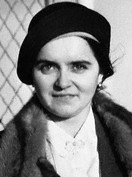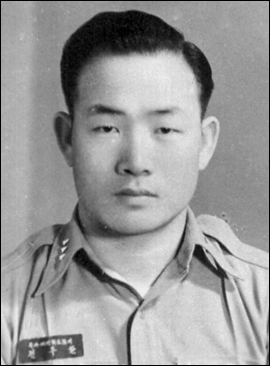|
First Lady Of South Korea
The first lady of the Republic of Korea (), commonly known as the first lady of South Korea, is the title held by the hostess of the Presidential Residence of South Korea, presidential residence, usually the wife of the president of South Korea. The position of first lady is currently held by Kim Hye-kyung, as president Lee Jae-myung's wife. History During the administration of President Park Chung Hee, the first lady Yuk Young-soo was killed. Afterwards, Park's daughter, Park Geun-hye, assumed the duties of first lady after her mother. Park Geun-hye later became president herself, making her the first and only female president of South Korea, However, as she was never married while in office, there has yet to be a first gentleman of Korea. List Notes See also * First lady * First Lady of North Korea * President of South Korea * List of presidents of South Korea Notes References {{First Ladies and Gentlemen Lists of spouses of heads of state, South Korea Fir ... [...More Info...] [...Related Items...] OR: [Wikipedia] [Google] [Baidu] |
Kim Hye-kyung
Kim Hea Kyung (; born 12 September 1966) is a South Korean pianist and current First Lady of South Korea as the wife of President Lee Jae Myung, who took office on 4 June 2025. Kim is a graduate of Sookmyung Women's University. The couple married in March 1991. Early life and education Kim Hea Kyung was born in 1966 in Seoul to a middle-class family. She completed her studies at Sunhwa Arts School before pursuing piano studies at Sookmyung Women's University. Awards ;National awards *: Recipient of the Grand Order of Mugunghwa (4 June 2025) (as First Lady of South Korea) Notes References External links * {{DEFAULTSORT:Kim, Hye-kyung 1966 births Living people First ladies of South Korea Sookmyung Women's University alumni People from North Chungcheong Province ... [...More Info...] [...Related Items...] OR: [Wikipedia] [Google] [Baidu] |
KOCIS Korea President Park Sejong Econ 04 (11640827013) (cropped)
The Korean Culture and Information Service (KOCIS; ) is an affiliated organization of the Ministry of Culture, Sports and Tourism of the South Korean government and runs 32 Korean cultural centers in 27 countries. The goal of the organization is to further enhance the image of Korea's national brand by promoting Korean heritage and arts through these cultural centers. It was announced in January 2024 that the service would shut down and become a part of the Ministry of Culture, Sports and Tourism. Main missions ¤ To upgrade the country's nation brand and to publicize government policies * Carrying out projects to boost the nation brand * Providing support for summit diplomacy by organizing cultural events and operating press centers during presidential visits abroad * Promoting Korea's key administrative priorities and major government policies around the world ¤ To promote the spread of Hallyu and to expand cultural exchanges * Operating overseas cultural centers and stren ... [...More Info...] [...Related Items...] OR: [Wikipedia] [Google] [Baidu] |
Kim Young-sam
Kim Young-sam (, ; 20 December 1927 – 22 November 2015), often referred to by his initials YS, was a South Korean politician and activist who served as the seventh president of South Korea from 1993 to 1998. From 1961, Kim spent almost 30 years as one of the leaders of the South Korean opposition and one of the most powerful rivals to the authoritarian regimes of Park Chung Hee and Chun Doo-hwan. He was elected to the National Assembly at the age of 25, the youngest in Korean history, and served as a nine-term lawmaker, working as a leader with Kim Dae-jung and the Democratization, democratic camp. His nickname is Geosan (巨山) and his hometown is Gimnyeong (金寧). Elected as president in the 1992 South Korean presidential election, 1992 presidential election, Kim became the first civilian to hold the office in over 30 years. He was inaugurated on 25 February 1993, and served a single five-year term, presiding over a massive anti-corruption campaign, the arrest of his two ... [...More Info...] [...Related Items...] OR: [Wikipedia] [Google] [Baidu] |
Son Myung-soon
Son Myung-soon (; 29 January 1929 – 7 March 2024), also transliterated as Sohn Myung Soon, was the First Lady of South Korea from 1993 to 1998. Biography Son was born on 29 January 1929 in Shinryū-yū, Kinkai-gun, Keishōnan Province, Korea, Empire of Japan (now Gimhae, South Korea) to Son Sang-ho and Kim Geunyi. She had two younger sisters who died early and her birth mother died in 1935. Her father later remarried to Gam Deok-soon, and had two more sons and six more daughters. Her father Sang-ho ran the largest rubber factory in Yeongnam and was called the "Masan chaebol." Son graduated from Jin Young Daechang Elementary School in Gimhae, Gyeongsangnam-do and Masan Girls' High School in Changwon. She later attended Ewha Womans University, where she took course in Pharmacy and married Kim Young-sam in 1951, during her third year at Ewha. In 1946, a new rule at Ehwa had been established which prohibited marriage of enrolled students. However, with the help of others, even ... [...More Info...] [...Related Items...] OR: [Wikipedia] [Google] [Baidu] |
Son Myung-soon's Portrait In Blue House
A son is a male offspring; a boy or a man in relation to his parents. The female counterpart is a daughter. From a biological perspective, a son constitutes a first degree relative. Social issues In pre-industrial societies and some current countries with agriculture-based economies, a higher value was, and still is, assigned to sons rather than daughters, giving males higher social status, because males were physically stronger, and could perform farming tasks more effectively. In China, a one-child policy was in effect until 2015 in order to address rapid population growth. Official birth records showed a rise in the level of male births since the policy was brought into law. This was attributed to a number of factors, including the illegal practice of sex-selective abortion and widespread under-reporting of female births. In patrilineal societies, sons will customarily inherit an estate before daughters. In some cultures, the eldest son has special privileges. For examp ... [...More Info...] [...Related Items...] OR: [Wikipedia] [Google] [Baidu] |
Roh Tae-woo
Roh Tae-woo (, ; 4 December 1932 – 26 October 2021) was a South Korean army general and politician who served as the sixth president of South Korea from 1988 to 1993. In 1987, he became the first president to be directly elected under the current democratic Constitution of South Korea, constitution, which was promulgated after a lengthy period of indirect elections under military governments following the advent of the Yushin Constitution in 1972 South Korean presidential election, 1972. Born in Daegu, Roh attended the Korea Military Academy alongside his close friend Chun Doo-hwan. Rising steadily through the ranks, he saw action in the Vietnam War, and by 1979 he was a major general and commanded the 9th Infantry Division (South Korea), White Horse Division. In that capacity, Roh played a key role in the Coup d'état of December Twelfth, December 1979 military coup that brought Chun to power, and supported Chun's violent crackdown of the Gwangju Uprising in 1980. Retiring fr ... [...More Info...] [...Related Items...] OR: [Wikipedia] [Google] [Baidu] |
Kim Ok-suk
Kim Ok-suk (; born September 8, 1935) is the widow of South Korean President Roh Tae-woo. She was the First Lady when Roh Tae-woo was in office, from 1988 to 1993. Early life Kim was born on September 8, 1935, in Antoku-men in Keishōhoku Province to Kim Young-han and Hong Moo-kyung. She is the fourth child of a family with three sons and two daughters. Her older brother Kim Pok-tong, served as a soldier in the South Korean Army and later was a politician. Her sister was the wife of former Minister of Commerce, Industry and Energy Geum Jin-ho. She attended and graduated from Gyeongbuk Women's High School in 1954. In 1956, she attended the Department of Family Education at Kyungpook National University. On May 31, 1959, she married Roh Tae-woo, then an army officer, at the Daegu Cultural Wedding Hall. As a result of the marriage, she dropped out of the university in her third year. During the 1987 South Korean presidential election, she attended her husband's election campa ... [...More Info...] [...Related Items...] OR: [Wikipedia] [Google] [Baidu] |
Chun Doo-hwan
Chun Doo-hwan (; 18 January 1931 – 23 November 2021) was a South Korean politician, army general and military dictator who served as the fifth president of South Korea from 1980 to 1988. Prior to his accession to the presidency, he was the country's ''de facto'' leader from 1979 to 1980. Chun usurped power after the 1979 Assassination of Park Chung Hee, assassination of president Park Chung Hee, who was himself a military dictator who had ruled since 1961. Chun orchestrated the Coup d'état of December Twelfth, 12 December 1979 military coup, then cemented his military in the Coup d'état of May Seventeenth, 17 May 1980 military coup in which he declared martial law and later set up a Samchung re-education camp, concentration camp for "purificatory education". He established the Fifth Republic of Korea on 3 March 1981. He governed under a constitution somewhat less authoritarianism, authoritarian than Park's Fourth Republic of Korea, Fourth Republic, but still held very broad e ... [...More Info...] [...Related Items...] OR: [Wikipedia] [Google] [Baidu] |
Lee Soon-ja
Lee Soon-ja (; born 24 March 1939) is the widow of South Korean President Chun Doo-hwan. She was the first lady when Chun Doo-hwan was in office, from 1980 to 1988. Early life Lee Soon-ja was born on March 24, 1939, in Chōshun, Manchukuo to Lee Gyu-dong and Lee Bong-nyeon. She is the second daughter of a family with three daughters and one son. Her father was from Seongju County in North Gyeongsang Province, and is the descendant of Lee Jo-yeon, a scholar and writer during the Goryeo period. He was an officer within the Manchukuo Imperial Army. Following the independence of Korea from the Japanese rule in 1945, the family moved back to the Korean Peninsula. Her father was appointed as an officer in the South Korean Army and worked at the Non-Commissioned Officer Academy. After the death of one of her sisters, Lee played the role of the eldest daughter in the family. During this time, she attended the Jinhae Girls' Middle School in Changwon. Afterward, Lee followed her ... [...More Info...] [...Related Items...] OR: [Wikipedia] [Google] [Baidu] |
Lee Soon-Ja 01
Lee may refer to: Arts and entertainment * ''Lee'' (2007 film), Tamil-language sports action film * ''Lee'' (2017 film), Kannada-language action film * ''Lee'' (2023 film), biographical drama about Lee Miller, American photojournalist * ''Lee'' (novel), by Tito Perdue, about an angry and well-read septuagenarian * "Lee", a 1973 single by The Detroit Emeralds * "Lee", a 2001 song by Tenacious D from their eponymous album Businesses Finance *Thomas H. Lee Partners, an American private equity firm founded in 1974 ** Lee Equity Partners, a breakaway firm founded in 2006 Manufacturers * Lee Tires, a division of Goodyear *Lee Filters, a maker of lighting filters Other businesses * Lee (brand), an American clothing brand * Lee Enterprises, an American media company (NYSE: LEE) * Lee Data, a defunct American computer company Education * Lee College, Bayton, Texas, United States * Lee University, Cleveland, Tennessee, US Meteorology * List of storms named Lee * Lee w ... [...More Info...] [...Related Items...] OR: [Wikipedia] [Google] [Baidu] |






